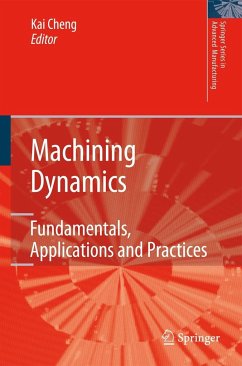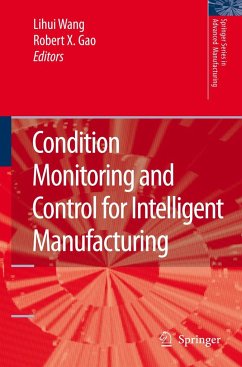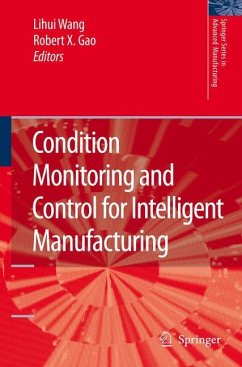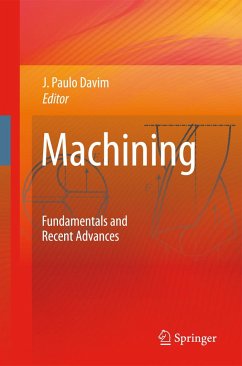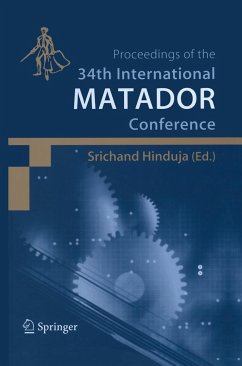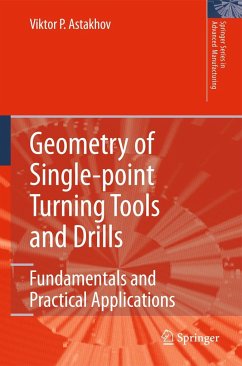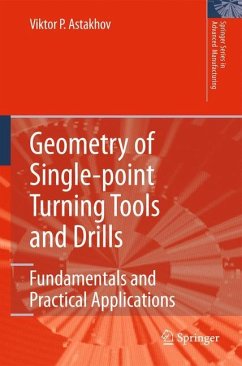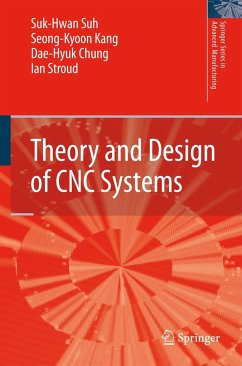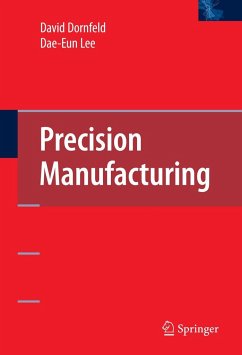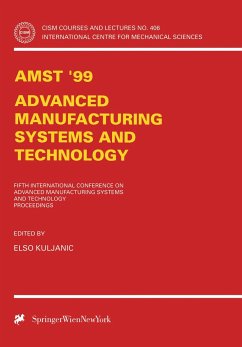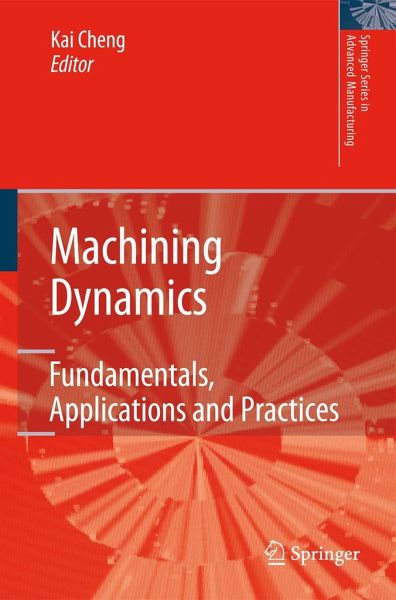
Machining Dynamics
Fundamentals, Applications and Practices
Herausgegeben: Cheng, Kai
Versandkostenfrei!
Versandfertig in 6-10 Tagen
113,99 €
inkl. MwSt.

PAYBACK Punkte
57 °P sammeln!
Machining dynamics play an essential role in the performance of the machine tools and machining processes which directly affect the removal rate, workpiece surface quality and dimensional and form accuracy. Machining Dynamics: Fundamentals and Applications will be bought by advanced undergraduate and postgraduate students studying manufacturing engineering and machining technology in addition to manufacturing engineers, production supervisors, planning and application engineers, and designers.
Machining dynamics are vital to the performance of machine tools and machining processes in manufacturing. Advances in computational modelling, sensors, diagnostic equipment and analysis tools, 3D surface metrology and manufacturing science are providing a new perspective on the machining process.
Written by experts in each field, this book discusses the state-of-the-art applications, practices and research in machining dynamics. Part 1 presents the basic theory, analysis and control methodology in addition to detailed modelling and diagnostic techniques, while Part 2 focuses on the applications of machining dynamics in machining processes such as turning, grinding, gear machining and non-traditional machining.
Advanced undergraduate and postgraduate students studying manufacturing engineering and machining technology will find this book a comprehensive introduction. Manufacturing engineers, production supervisors, planning and application engineers and designers will find it a useful reference.
Written by experts in each field, this book discusses the state-of-the-art applications, practices and research in machining dynamics. Part 1 presents the basic theory, analysis and control methodology in addition to detailed modelling and diagnostic techniques, while Part 2 focuses on the applications of machining dynamics in machining processes such as turning, grinding, gear machining and non-traditional machining.
Advanced undergraduate and postgraduate students studying manufacturing engineering and machining technology will find this book a comprehensive introduction. Manufacturing engineers, production supervisors, planning and application engineers and designers will find it a useful reference.



